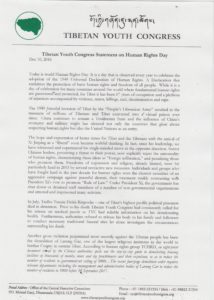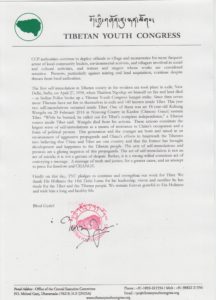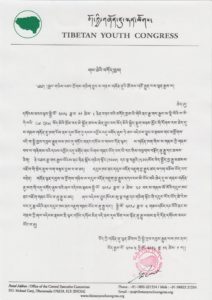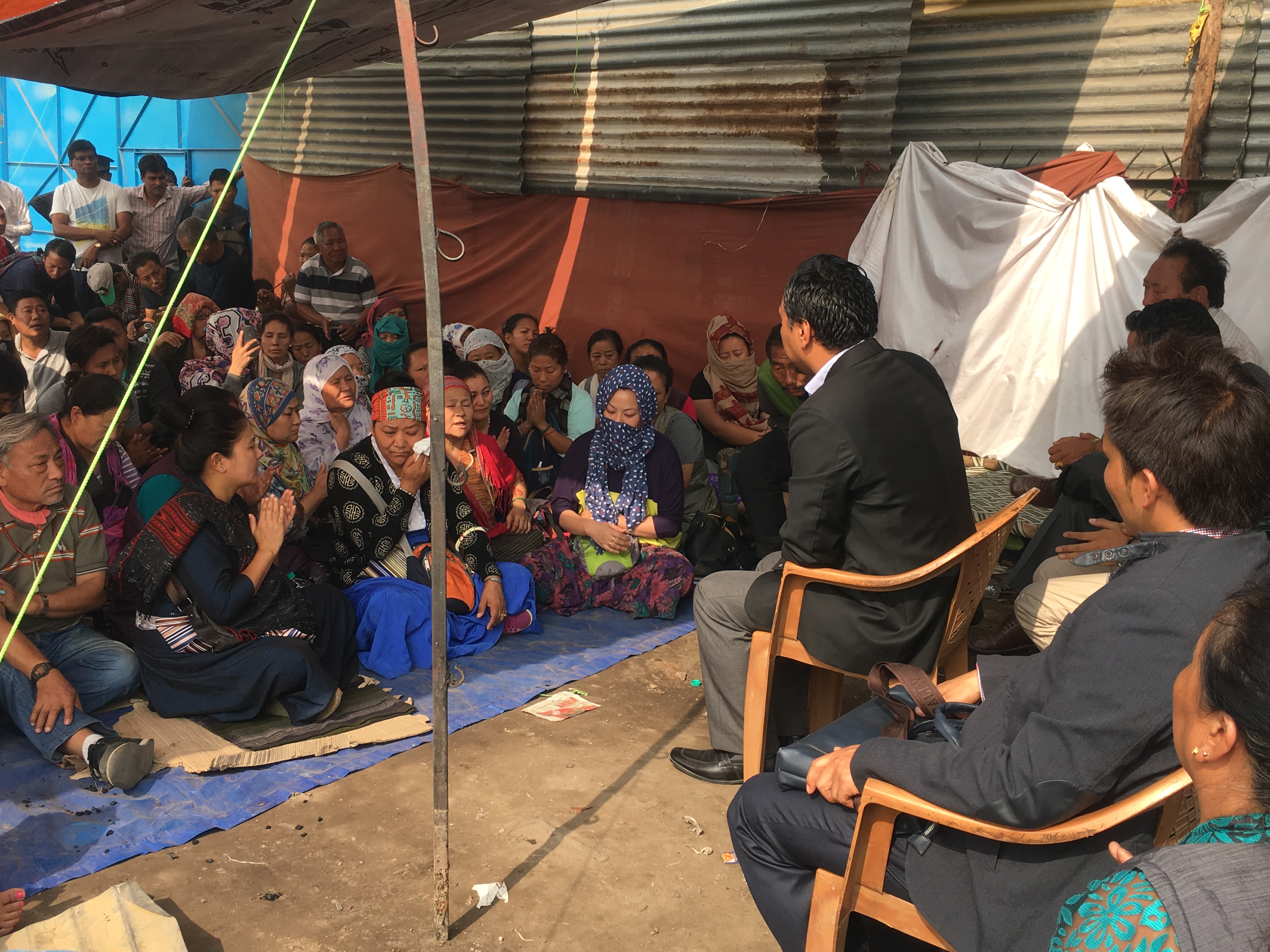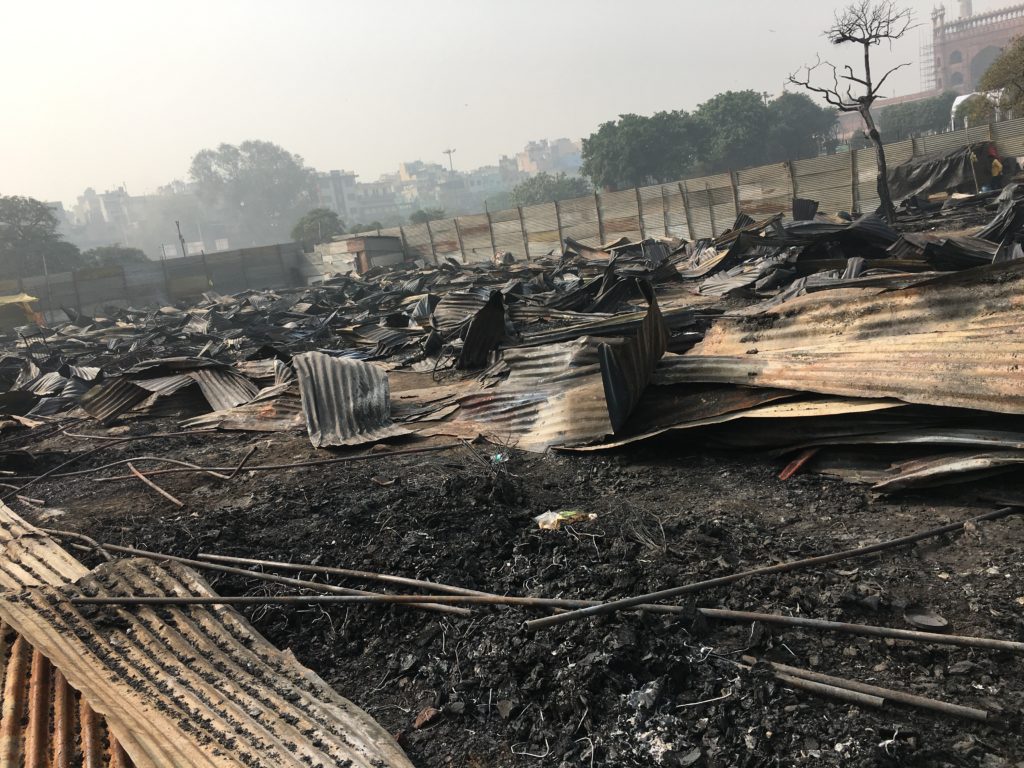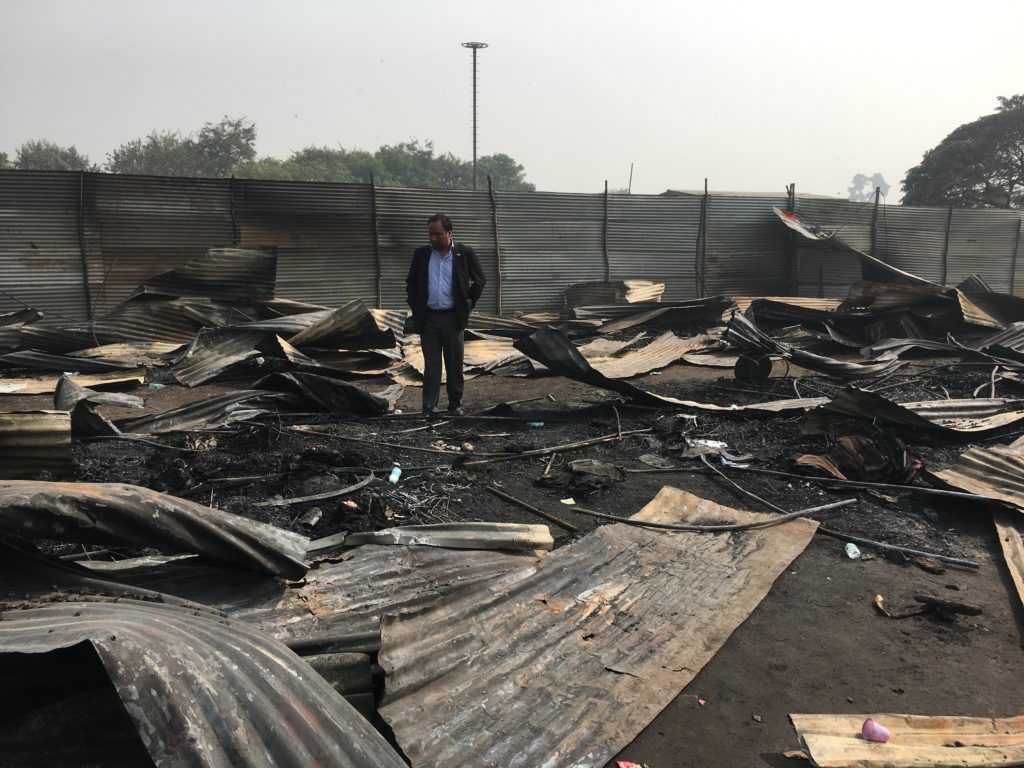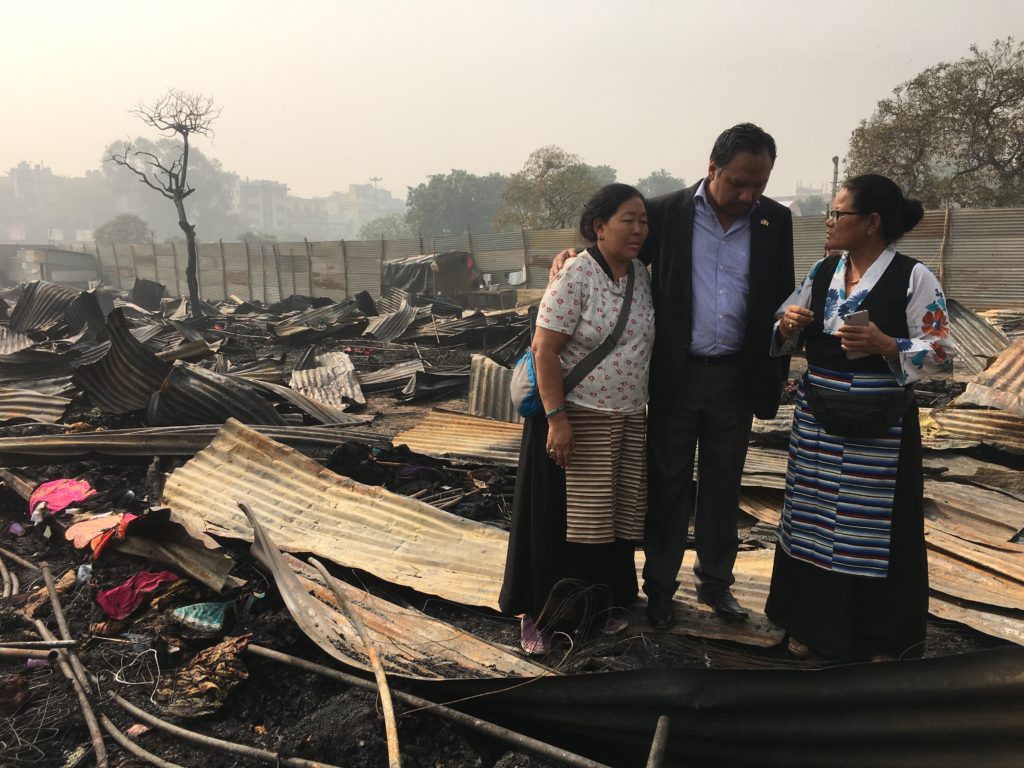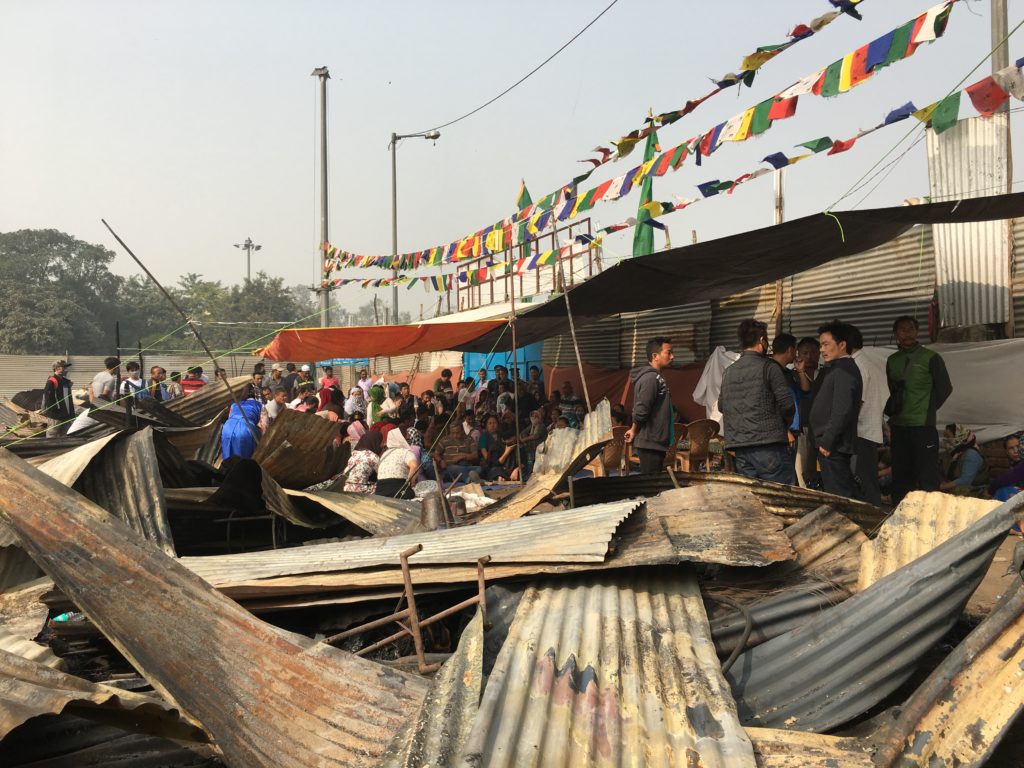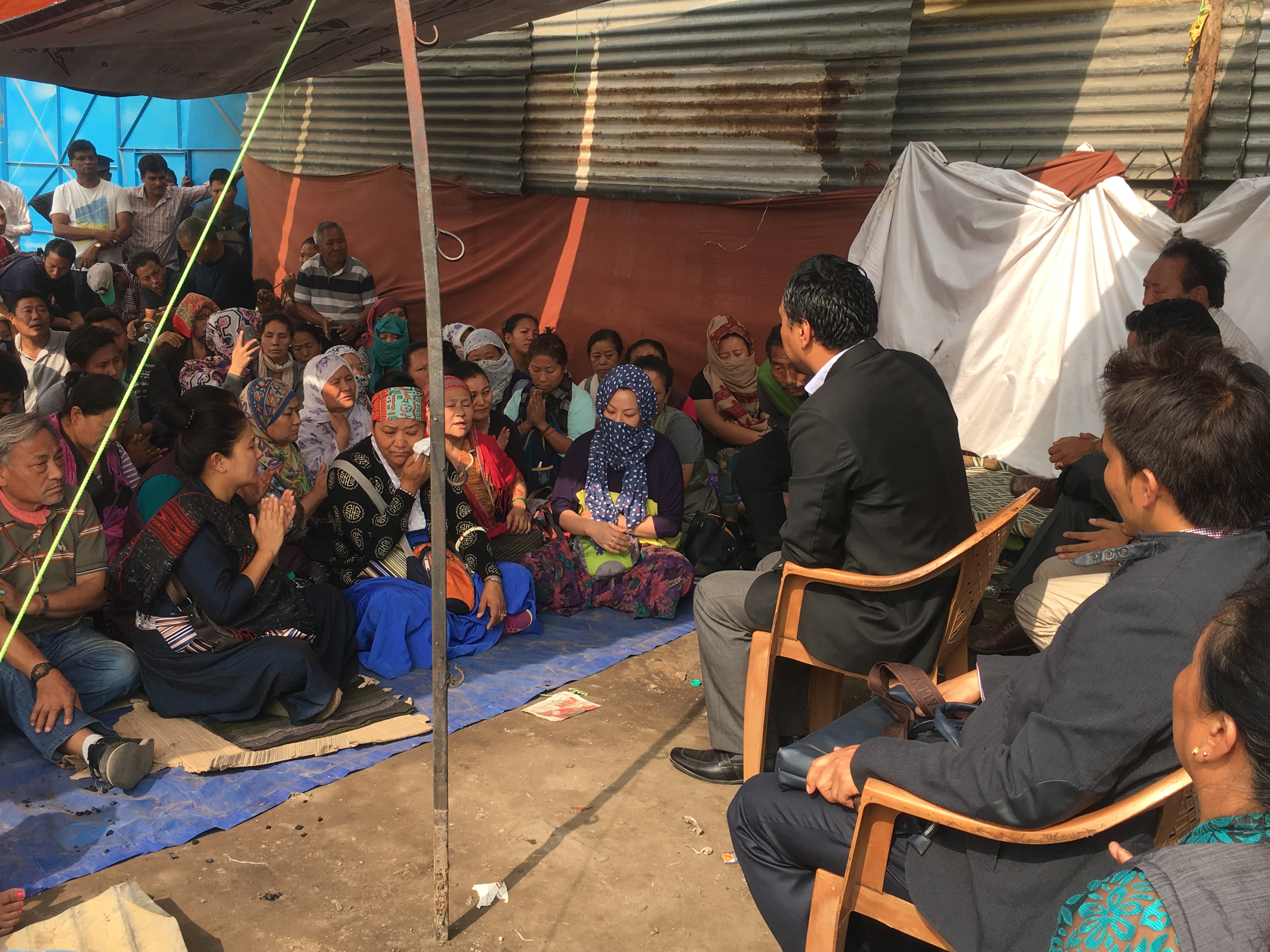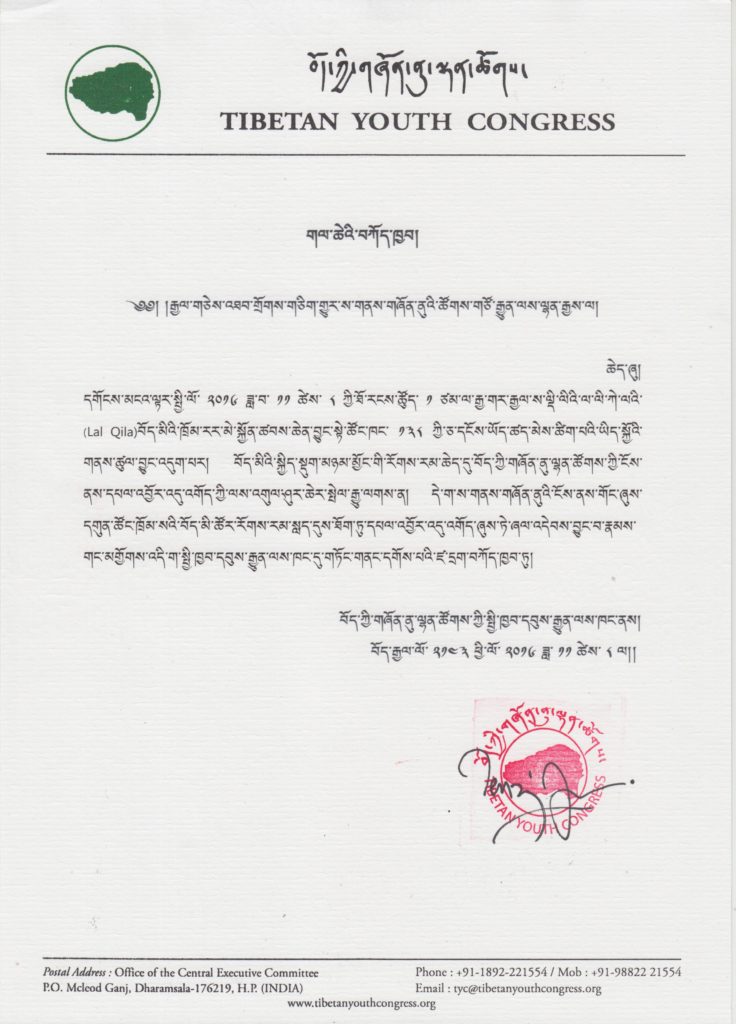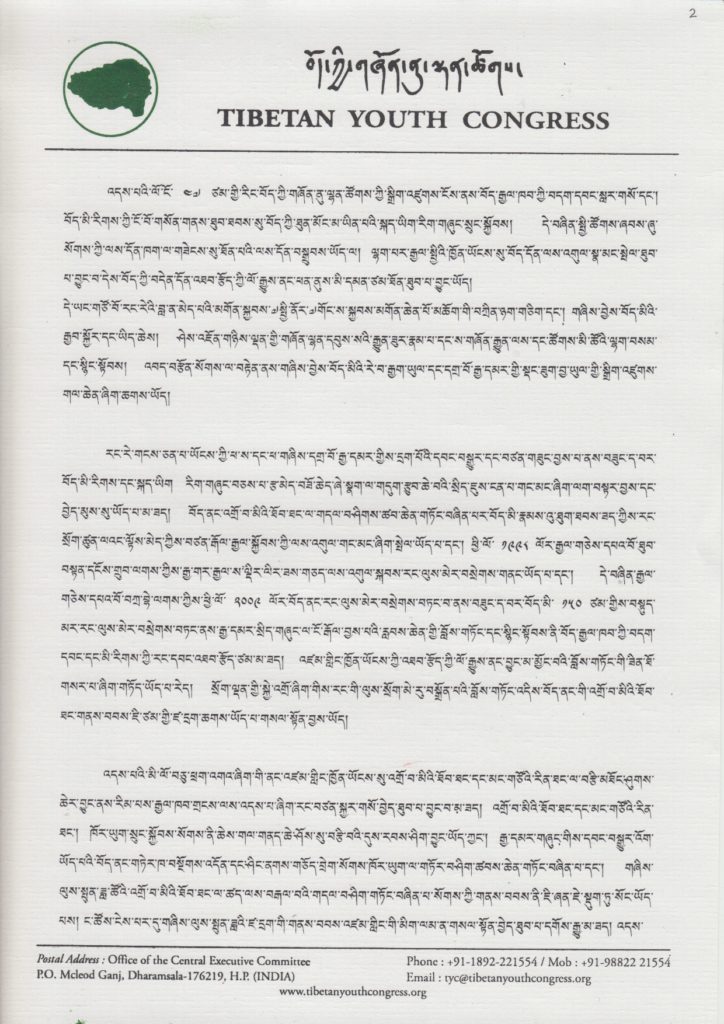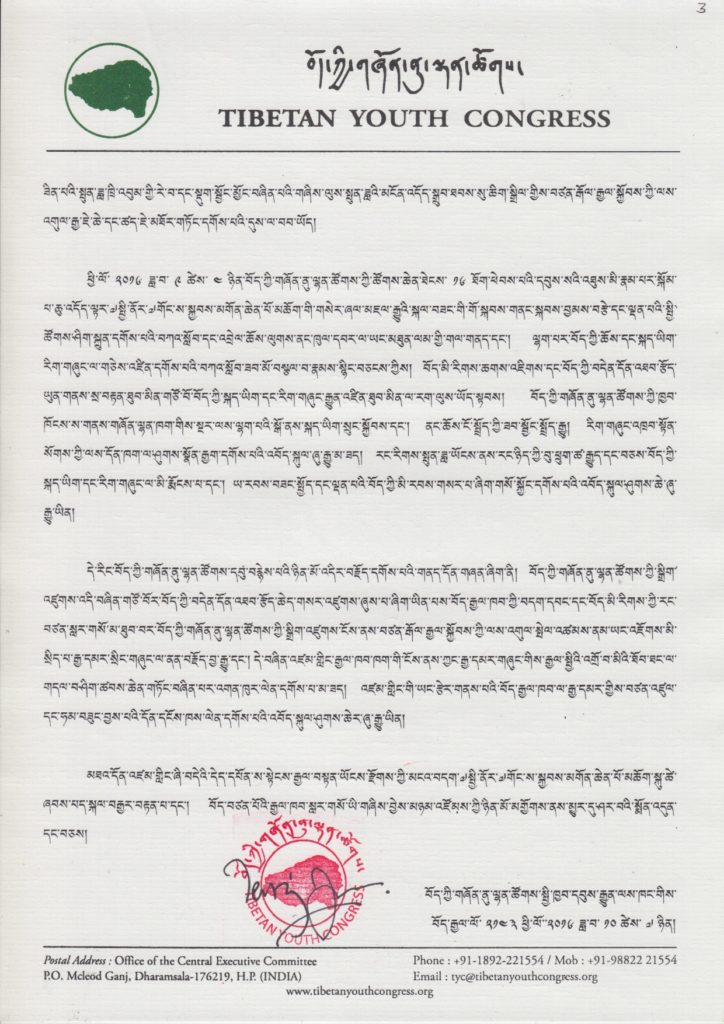Tibetan Youth Congress Statement on Human Rights Day
Dec 10, 2016
Today is world Human Rights Day. It is a day that is observed every year to celebrate the adoption of the 1948 Universal Declaration of Human Rights. A Declaration that enshrines the protection of basic human rights and freedom of all people. While it is a day of celebration for many countries around the world where fundamental human rights are guaranteed and protected, for Tibet it has been 67 years of occupation and a plethora of injustices accompanied by violence, terror, killings, raid, discrimination and rape.
The 1949 forceful invasion of Tibet by the “People’s Liberation Army” resulted in the massacre of millions of Tibetans and Tibet converted into a virtual prison ever since. China continues to remain a Totalitarian State and the influence of China’s economy and military might has silenced not only the countries that gloat about respecting human rights but also the United Nations as an entity.
The hope and expectation of better times for Tibet and the Tibetans with the arrival of Xi Jinping as a “liberal” soon became wishful thinking. In fact, since his leadership, we have witnessed and experienced his single-minded move in the opposite direction. Senior Chinese leaders, perceiving a threat to their power, now explicitly reject the universality of human rights, characterizing these ideas as “foreign infiltration,” and penalizing those who promote them. Freedoms of expression and religion, already limited, were hit particularly hard in 2015 by several restrictive new measures. Individuals and groups who have fought hard in the past decade for human rights were the clearest casualties of an aggressive campaign against peaceful dissent, their treatment starkly contrasting with President Xi’s vow to promote “Rule of Law.” Under President Xi, the government has shut down or detained staff members of a number of non-governmental organizations and arrested and imprisoned many activists.
In July, Trulku Tenzin Delek Rinpoche – one of Tibet’s highest profile political prisoners died in detention. Prior to his death Tibetan Youth Congress had consistently called for his release on medical parole as TYC had reliable information on his deteriorating health. Furthermore, authorities refused to release his body to his family and followers to conduct necessary traditional funeral rites let alone investigate the circumstances surrounding his death.
Another gross violation perpetrated most recently against the Tibetan people has been the demolition of Larung Gar, one of the largest religious institutes in the world in Serthar County in eastern Tibet. According to human rights group TCHRD, an eight-point document issued by the Chinese authorities spells out the step-by-step guide to demolishing housing facilities of thousands of monks, nuns and lay practitioners and their expulsion, so as to reduce the number of residents to government-set ceiling of 5000…The recent four-page demolition order requires relevant departments including the management and administrative bodies of Larung Gar to reduce the number of residents to 5000 before 30 September 2017.
CCP authorities continue to deploy officials in village and monasteries for more frequent arrest of local community leaders, environmental activists, and villagers involved in social and cultural activities, and writers and singers whose works are considered sensitive. Protests, particularly against mining and land acquisition, continue despite threats from local authorities.
The first self-immolation in Tibetan society in the modern era took place in exile, New Delhi, India, on April 27, 1998, when Thubten Ngodup set himself on fire and later died – as Indian Police broke up a Tibetan Youth Congress hunger strike. Since then seven more Tibetans have set fire to themselves in exile and 145 known inside Tibet. This year two self-immolations occurred inside Tibet. One of them was an 18-year-old Kalsang Wangdu on 29 February 2016 in Nyarong County in Kardze (Chinese: Ganzi) eastern Tibet. “While he burned, he called out for Tibet’s complete independence,” a Tibetan source inside Tibet said. Wangdu died from his actions. These actions constitute the largest wave of self-immolations as a means of resistance to China’s occupation and a form of political protest. This generation and the younger are born and raised in an environment of aggressive propaganda and China’s efforts to brainwash the Tibetans into believing that China and Tibet are one country and that the former has brought development and happiness to the Tibetan people. The acts of self-immolations and protests are a glaring negation of this propaganda. The act of self-immolation is not an act of suicide; it is not a gesture of despair. Rather, it is a strong-willed conscious act of conveying a message. A message of truth and justice, for a greater cause, and an attempt to press for freedom and CHANGE.
Finally on this day, TYC pledges to continue and strengthen our work for Tibet. We thank His Holiness the 14th Dalai Lama for his leadership, vision and sacrifice he has made for the Tibet and the Tibetan people. We remain forever grateful to His Holiness and wish him a long and healthy life.
Bhod Gyalo!
